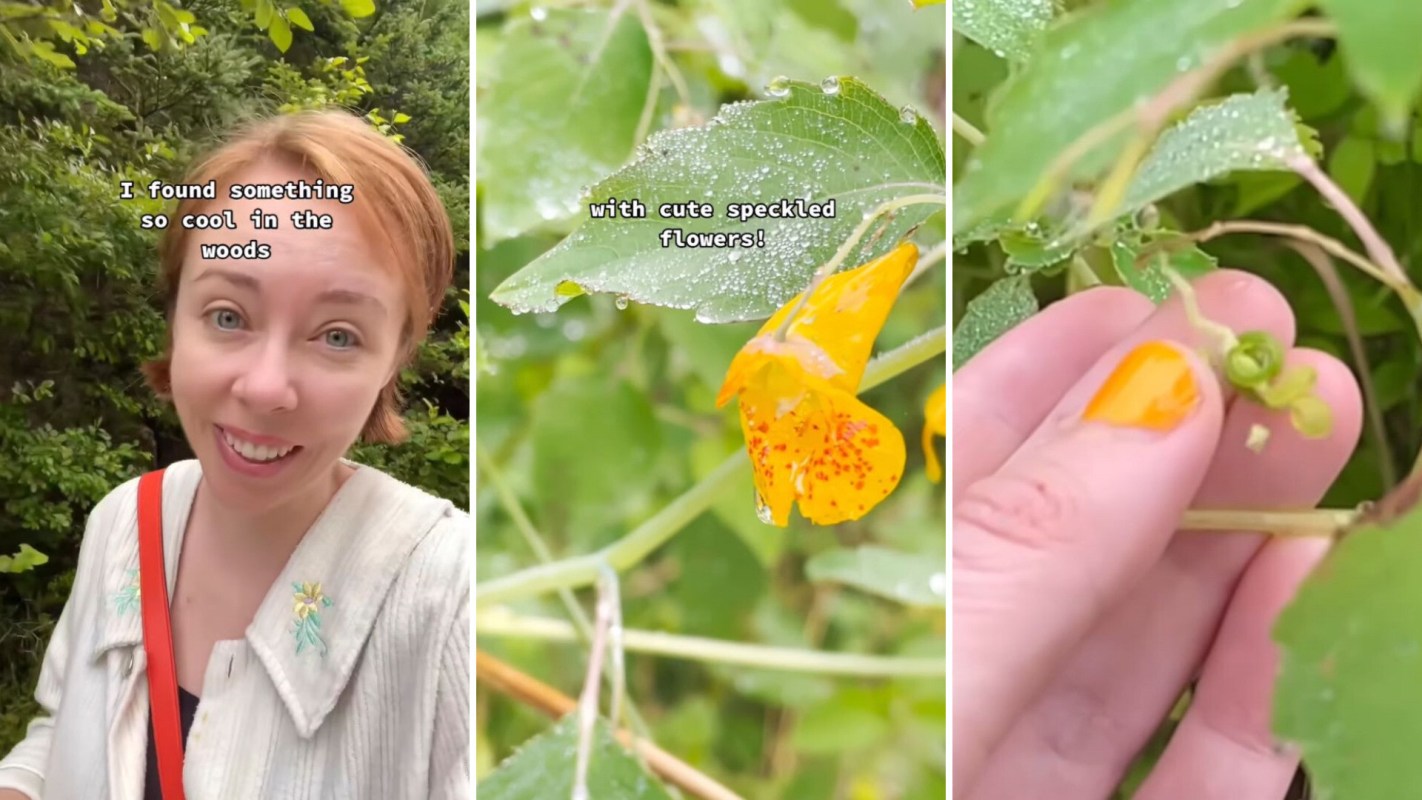This past August, one Instagrammer was excited to show the internet an interesting explosive native plant she came across in nature.
Luba Magnus (@lubamagnus) posted a video showing off her find. "I found something so cool in the woods," she says. "This is jewelweed."
"Jewelweed is an annual plant native to North America with cute speckled flowers," Magnus continues. In the video, she shows off a plant with sawtooth leaves and yellow, orchid-like flowers with orange spots.
According to Magnus, the plant is hiding more than one amazing secret. "When its flowers disappear, it leaves behind seed pods which, at the slightest touch, explode!" she says.
The video contains several shots of the narrow, inchlong green pods exploding between Magnus' fingers.
Seeds scatter far and wide when they explode — probably the reason for their unique characteristic. The further seeds travel from the parent plant, the easier it is for the plant to spread.
But that isn't all that jewelweed can do. Magnus also claims "its leaves are known for treating poison ivy."
The U.S. Forest Service expands on this explanation on its page about jewelweed. "When applied [to the skin], sap from the stem and leaves is said to relieve itching and pain from a variety of ailments, including hives, poison ivy, stinging nettle, and other skin sores and irritations. The sap has also been shown to have antifungal properties and can be used to treat athlete's foot."
"Pretty neat, huh?" says Magnus. "Nature's cool!"
Commenters agreed wholeheartedly. "This might be my favourite plant ever!" said one user. "I never knew their real name. My mom told me they are called touch-me-nots ('cause… if you touch 'em, they explode…)."
According to the U.S. Forest Service, touch-me-nots are a closely related species.
Like jewelweed, other native plants are great for both humans and the ecosystem. They're easy to plant and care for because they're made for the local rainfall, temperature, and soil conditions.
They also offer food and shelter for wildlife, including pollinators. Many of them are edible or have other valuable properties — just like the fantastic plant this Instagrammer found.
Join our free newsletter for cool news and cool tips that make it easy to help yourself while helping the planet.









